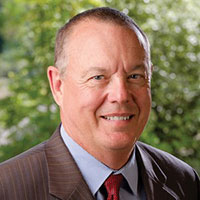Julian Elder is the Chief Executive at Scion, a Crown research institute in New Zealand. His talk will cover why research and development is crucial to the future of forestry – both the risks it faces but also the opportunity.
Biography

Julian Elder joined Scion as a deeply experienced chief executive, having led large-scale civil infrastructure projects in waste treatment, renewables, telecommunications, energy and water. He has a successful track record leading multi-stakeholder complex ventures, delivering sustained profitable growth to utility, contracting and professional services businesses across Asia Pacific. Julian brings international business experience along with experience in applying leading-edge technology to meet business needs. He led WEL Networks Limited from 2007 to 2014 and the associated Waikato Networks Limited from 2011 to 2014, doubling the size of the combined business during his tenure. Prior to that role he was Chief Engineer at Watercare Services from 2005 to 2007.
Graduating from the University of Auckland with a PhD in Electrical Engineering in 1984, Julian is a Chartered Member of the New Zealand Institute of Directors and a Chartered Professional Engineer. He is currently Chair of the Waikato Regional Theatre Governance Panel, and until recently a director of Flick Electric Company, Soda Inc., Enterprise Angels, New Zealand Wind Farms, a trustee of the Waikato Animal Welfare Foundation and a member of the University of Waikato Honours Committee.
The Future of Forestry – The Climate Change Challenge and Opportunity
Research and development is crucial to the future of forestry – both the risks it faces but also the opportunity. This is a sector where R&D plays, or should play, an essential role because what we plant today needs to deliver over a period of decades.
The talk will cover my perspective on why this is so important and what we are doing to try and develop compelling narratives to get all the key actors engaged in driving, not only the mitigation and adaption needs resulting from climate change, but also the very significant opportunities that the global move to a circular bioeconomy offers. The premise is that this is going to involve all actors coming together to develop and commit to a direction over the long term.

